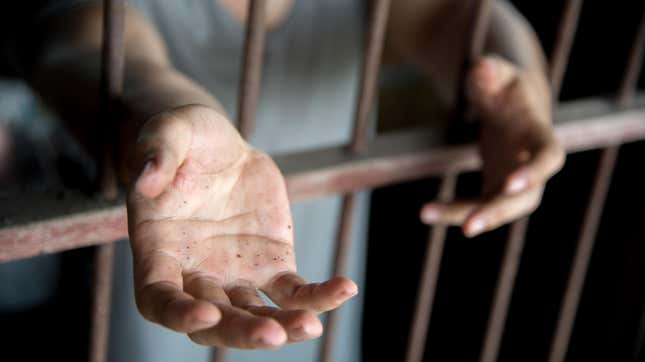Arizona Prison Is Reportedly Inducing Early Labor in Pregnant People Without Consent
One woman said she “felt like I was viewed as a liability, and walking around a prison yard nine months pregnant didn’t comfort this state institution.”
JusticePolitics

At least three pregnant women incarcerated at the Perryville prison in Buckeye, Arizona, say the prison induced their labor early against their will, Arizona Republic reports. Two of the women, Stephanie Pearson and Desiree Romero, had their labor induced at 39 weeks last year. Another woman, Jocelyn Heffner, had her labor induced at 37 weeks—once in 2020, and once in 2022. The women told the outlet they were informed that this is a set policy at the prison, and medical records the newspaper reviewed have corroborated their claims.
While research shows labor can safely be induced early at around 39 weeks, experts say that denying pregnant people agency in their birthing can result in enduring physical and emotional trauma, to the detriment of the pregnant person and the baby. Speaking to Arizona Republic, all three of the women said they believed they had been induced to reduce liability for the prison—not for their own safety. Pearson said a prison obstetrician told her “they induce everyone because they don’t want anyone going into labor here.”
She continued, “I’m quite used to the prison making all these decisions for us, because we are still state property.”
Romero told the outlet that a medical provider for the prison told her that inducing early labor among incarcerated people is their set policy “so that we don’t go into labor in prison.” The policy allegedly emerged after incidents in which incarcerated pregnant people at the Perryville prison gave birth in their cells—one woman gave birth in her toilet in 2019.
-

-

-

-

-

-

-

-

-

-

-

-

-

-

-

-

-

-

-

-

-

-

-

-

-

-

-

-

-

-

-

-

-

-

-

-

-

-

-

-








































